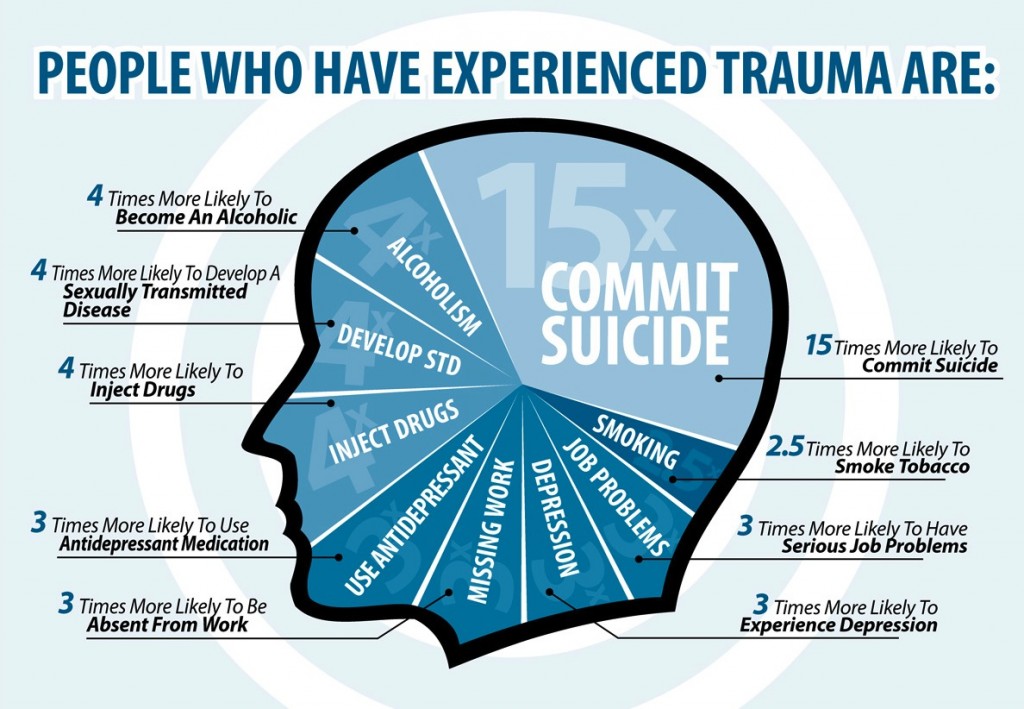Managing Trauma Symptoms

Trauma occurs when a person has experienced a distressing event that made them feel threatened, anxious, or frightened as a result. A traumatic event is an incident that causes physical, emotional, spiritual or psychological harm. Trauma has no boundaries with regard to age, gender, socioeconomic status, race, ethnicity or sexual orientation. Trauma is a common experience for adults and children.
MANAGING DAY TO DAY SYMPTOMS
Breathe Slowly And Deeply – Use anytime and anywhere; inhale for four counts, hold for two and exhale for six to eight counts. This will activate the part of your nervous system that helps your body calm itself, allowing you to think clearly and return to the present moment.
Validate Your Experience – What you have experienced is real and hurtful. It’s important to remind yourself of this as you go through challenging symptoms because self-validation is an important piece of healing.
Focus On Your Five Senses (5-4-3-2-1) – Start with five different things you see, hear, sense with your skin, taste, and smell. Then notice four of each, then three of each, and so on. Be as specific about these items as you can to make you really concentrate on external factors and to get out of your head. Pay attention to things like shape, scent, texture and color and focusing on being present.
Containment – Imagine you are in a different place such as the beach. Now, Imagine you have a box and you put all of your emotions in your box, such as pain, anger, stress, shame, negativity, etc. Put all of the weight these emotions carry in the box as well and lock it. Doing this will allow you to be present and feel safe.
Use A Gravity Or Weighted Blanket – Insomnia, nightmares, flashbacks and high anxiety cause sleep disruptions which lead you to have problems concentrating and become irritable. A weighted blanket simulates being held firmly, and can assist in reducing anxiety and insomnia during your sleep.
Laugh – Laughter is proven to reduce stress by releasing hormones that boost your immune system and rewire your brain with positive thoughts and feelings.
You have a right to feel calm and in the present moment. Practicing these tools is a good first step to managing your traumatic stress and getting on the road to recovery.
MANAGING THE SYMPTOMS LONG-TERM
- Give yourself time
- Ask for support from people who care about you
- Eat a well-balanced diet, exercise, rest, and avoid drugs and alcohol
- Pursue hobbies or other interests
- Spend time with others to avoid becoming withdrawn
Seeking treatment with a licensed Psychologist or mental health clinician can help you find the optimal level of emotion to assist a person with appropriately experiencing and regulating emotions. In treatment, the goal is to help a person learn to regulate their emotions without the use of substances or other unsafe behaviors.
